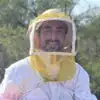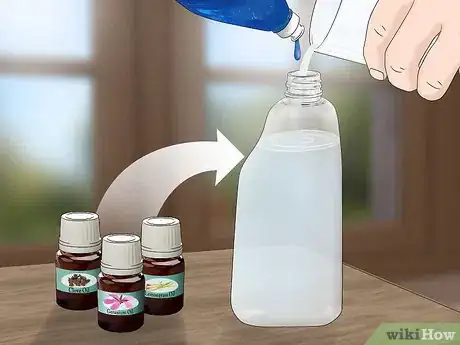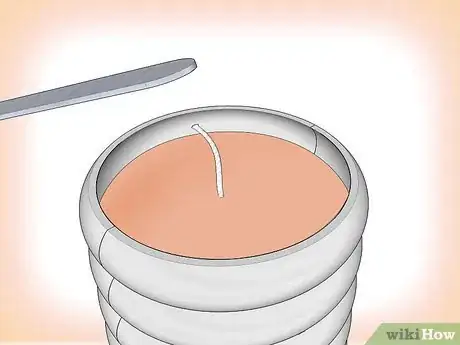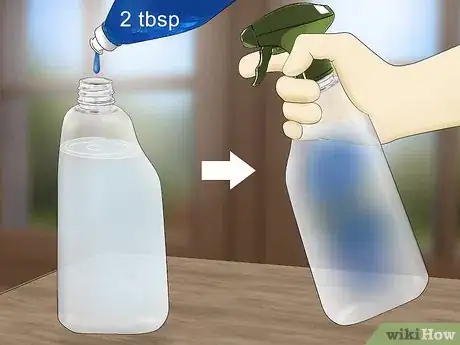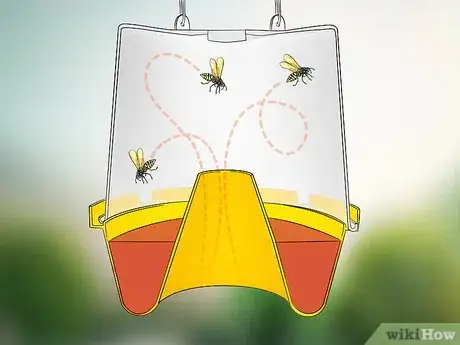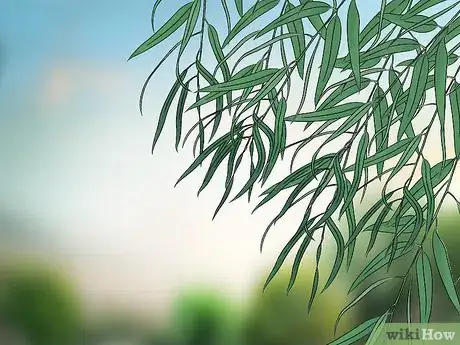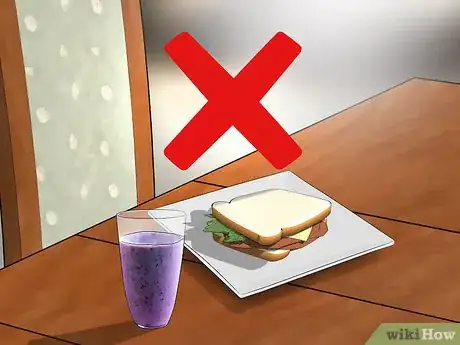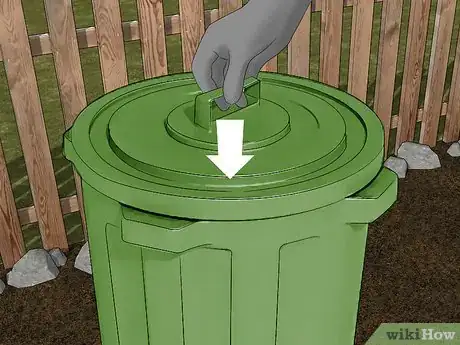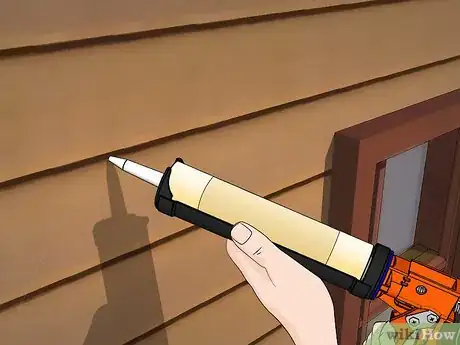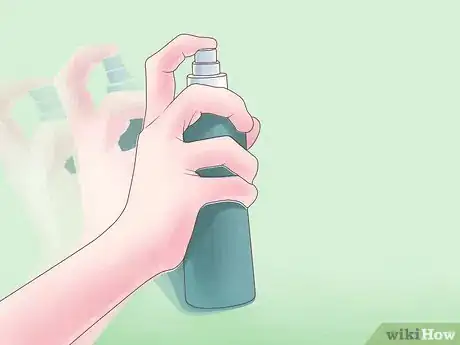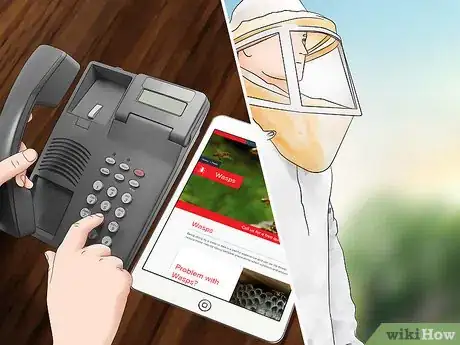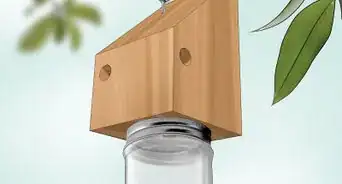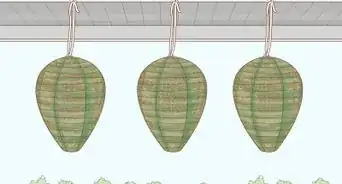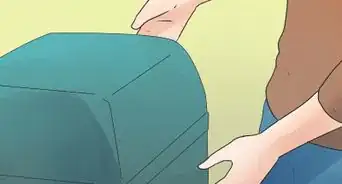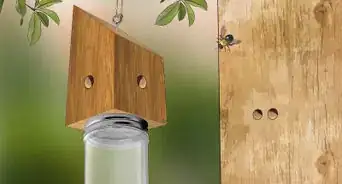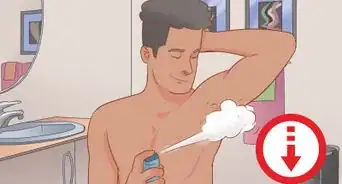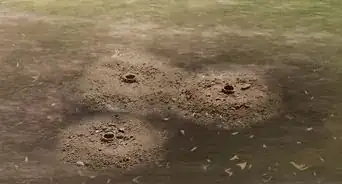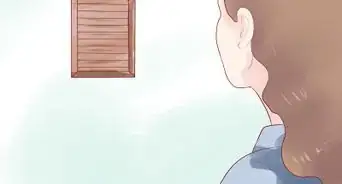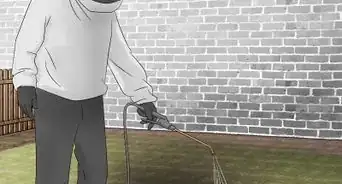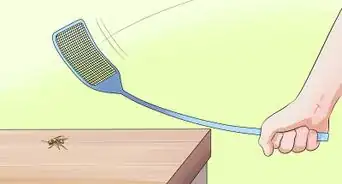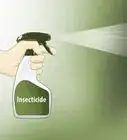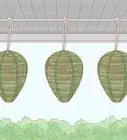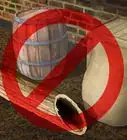This article was co-authored by Scott McCombe and by wikiHow staff writer, Eric McClure. Scott McCombe is the CEO of Summit Environmental Solutions (SES), a family-owned local pest solutions, animal control, and home insulation company based in Northern Virginia. Founded in 1991, SES has an A+ rating with the Better Business Bureau and has been awarded “Top Rated Professional,” and “Elite Service Award" by HomeAdvisor.
There are 11 references cited in this article, which can be found at the bottom of the page.
This article has been viewed 119,840 times.
Nothing will put an end to an outdoor hangout session quicker than a swarm of wasps. Even though most wasp species won’t attack people unprovoked, it's best to use preventative measures whenever you're in an area where wasps may be so that you don't risk being stung.[1] There are a variety of different ways to keep wasps from hanging around, from directly dealing with them to taking passive measures to dissuade them.
Here are 10 effective ways to keep wasps away for good.
Steps
Expert Q&A
-
QuestionWhat can I use to keep wasps away?
 Scott McCombeScott McCombe is the CEO of Summit Environmental Solutions (SES), a family-owned local pest solutions, animal control, and home insulation company based in Northern Virginia. Founded in 1991, SES has an A+ rating with the Better Business Bureau and has been awarded “Top Rated Professional,” and “Elite Service Award" by HomeAdvisor.
Scott McCombeScott McCombe is the CEO of Summit Environmental Solutions (SES), a family-owned local pest solutions, animal control, and home insulation company based in Northern Virginia. Founded in 1991, SES has an A+ rating with the Better Business Bureau and has been awarded “Top Rated Professional,” and “Elite Service Award" by HomeAdvisor.
Pest Control Specialist Regularly applying pesticides around your home can help control wasps, but you can also try setting bait traps to catch and kill them.
Regularly applying pesticides around your home can help control wasps, but you can also try setting bait traps to catch and kill them.
Warnings
- Folk remedies involving gasoline or spraying wasps with a hose don’t work.[18]⧼thumbs_response⧽
- There isn’t a ton of evidence that decoy wasp nests actually work.[19]⧼thumbs_response⧽
- Bait stations with wasp poison have not proven to be an effective way of controlling wasps.[20]⧼thumbs_response⧽
- If you’re allergic to wasp stings, do not approach wasps or attempt to remove them yourself. Hire a professional and stay away.[21]⧼thumbs_response⧽
References
- ↑ Steve Downs. Live Bee Removal Specialist. Expert Interview. 23 February 2020.
- ↑ https://pubmed.ncbi.nlm.nih.gov/23081867/
- ↑ https://pubmed.ncbi.nlm.nih.gov/23081867/
- ↑ https://www.washingtonpost.com/lifestyle/home/pest-free-patio-outdoor-entertaining/2021/04/23/2525e602-a11b-11eb-a774-7b47ceb36ee8_story.html
- ↑ https://www2.illinois.gov/dnr/OI/Pages/BPTheAfternoontheWaspsWentDown.aspx
- ↑ https://www.countryliving.com/uk/wildlife/countryside/a22711271/how-to-keep-wasps-away-from-picnic-food/
- ↑ https://entomology.ca.uky.edu/ef620
- ↑ https://www.countryliving.com/uk/wildlife/countryside/a22711271/how-to-keep-wasps-away-from-picnic-food/
- ↑ https://www.diyncrafts.com/113184/home/gardening/plants-to-repel-wasps
- ↑ http://ipm.ucanr.edu/PMG/PESTNOTES/pn7450.html
- ↑ https://entomology.ca.uky.edu/ef620
- ↑ Scott McCombe. Pest Control Specialist. Expert Interview. 19 November 2019.
- ↑ https://entomology.ca.uky.edu/ef620
- ↑ Scott McCombe. Pest Control Specialist. Expert Interview. 19 November 2019.
- ↑ Steve Downs. Live Bee Removal Specialist. Expert Interview. 23 February 2020.
- ↑ https://www.countryliving.com/uk/wildlife/countryside/a22711271/how-to-keep-wasps-away-from-picnic-food/
- ↑ https://www.countryliving.com/uk/wildlife/countryside/a22711271/how-to-keep-wasps-away-from-picnic-food/
- ↑ https://entomology.ca.uky.edu/ef620
- ↑ https://www.scienceworld.ca/stories/do-fake-wasp-nests-fool-wasps/
- ↑ http://ipm.ucanr.edu/PMG/PESTNOTES/pn7450.html
- ↑ https://www.allergicliving.com/2018/07/26/after-husband-dies-of-wasp-allergy-widow-urges-get-the-allergy-shots/
About This Article
To keep wasps away from your home, cover your garbage cans tightly as wasps are attracted to food waste. To create a natural repellent, mix clove, geranium, and lemongrass essential oils in a spray bottle filled with water and use it in areas of your house that attract wasps. You can also grow wasp-repellent plants, such as mint, thyme, and citronella. If you find a nest, douse it with a solution of dish soap and water. For tips on how to make a wasp trap, keep reading!
